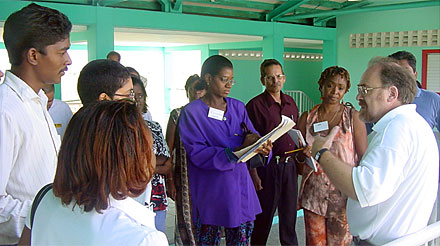
![]()
Our Mission
Our Mission
Associate Profiles
Selected Projects
Contact Information
Home
SERDA is a consultancy interested in learning, and in the ways that different cultures address the problems of schooling. SERDA staff update themselves constantly on the wealth of material generated by schools, universities, and government bodies in a variety of international locations. But we remain aware that fads and fashions permeate the discourse of education more now than ever.
The history of educational theory is the history of insights about how we learn and what we learn. It reviews the community context in which it occurs and both reflects and expands cultural perspectives.
In the context of the profession of teaching, theory and research catalogues the assumptions of teachers about their subjects and about the enterprise of education as a whole. It also describes and critiques the general approach and specific practical strategies that teachers use to maximise the performance of their students. Such strategies speak to teacher-student relationships, teacher performative skills, curriculum materials, evaluation procedures etc..
Every community wants an internationally competitive system. Everyone wants quantifiable results whether in relation to student performance or teacher competence. We all praise concepts of student-centred learning, of teaching through outcomes and key stages toward essential graduation learnings. We all want our students to exhibit fluency, a variety of literacies and critical thinking. We want them to display thinking that is outside the box and that demonstrates interdisciplinarity. We want them to be self-directed and culturally aware.
The problem is that all these terms are labels that have theappearance of being self-evidently meaningful and good for us. SERDA believes in reviewing all labels on an on-going basis. We believe that it is possible to describe critical thinking in a way that is useful rather than merely fashionable. Similarly, if we hold that student-centredness is important to learning, we should be able to explain what the idea means for us and why it may be relevant and appropriate for particular client contexts.
There are no panaceas for guaranteeing learning, and different cultural contexts require local considerations. SERDA will never suggest universal template solutions – only those that are regionally appropriate and are the result of equitable collaboration.

www.serda.ca
24 May 2008